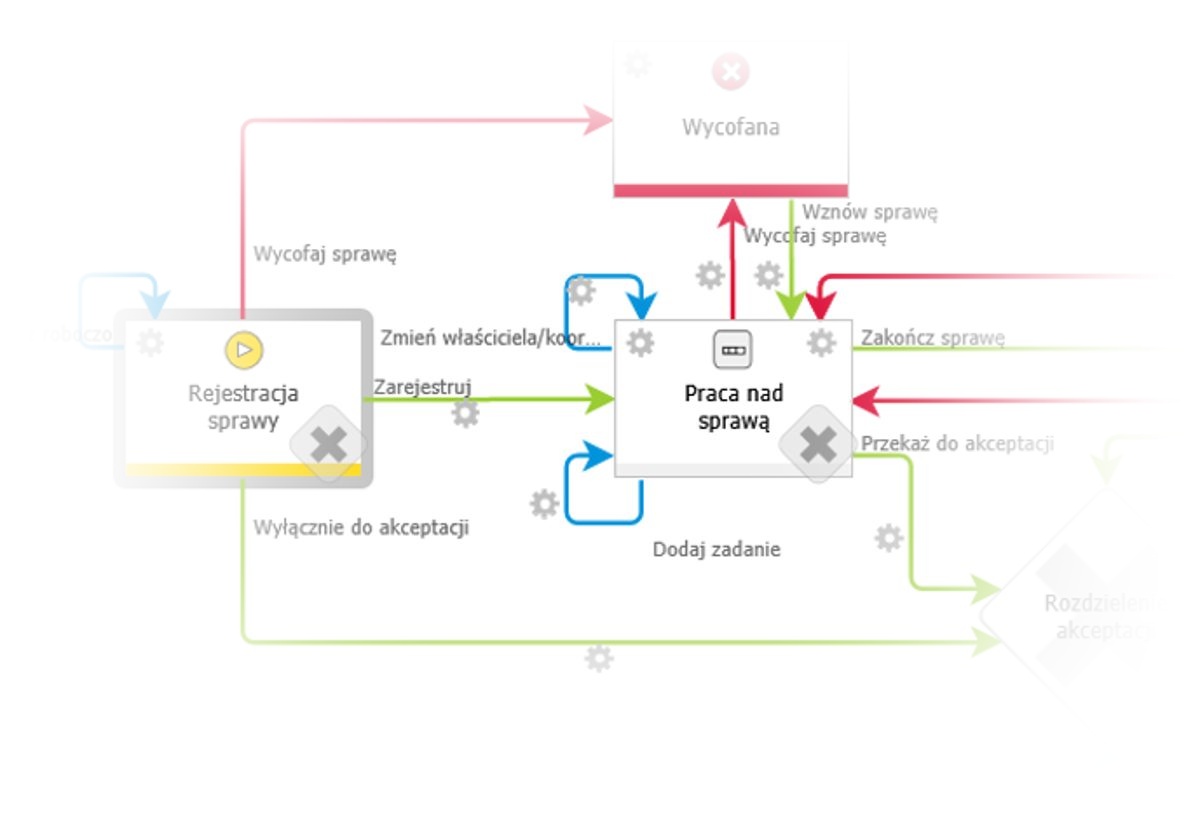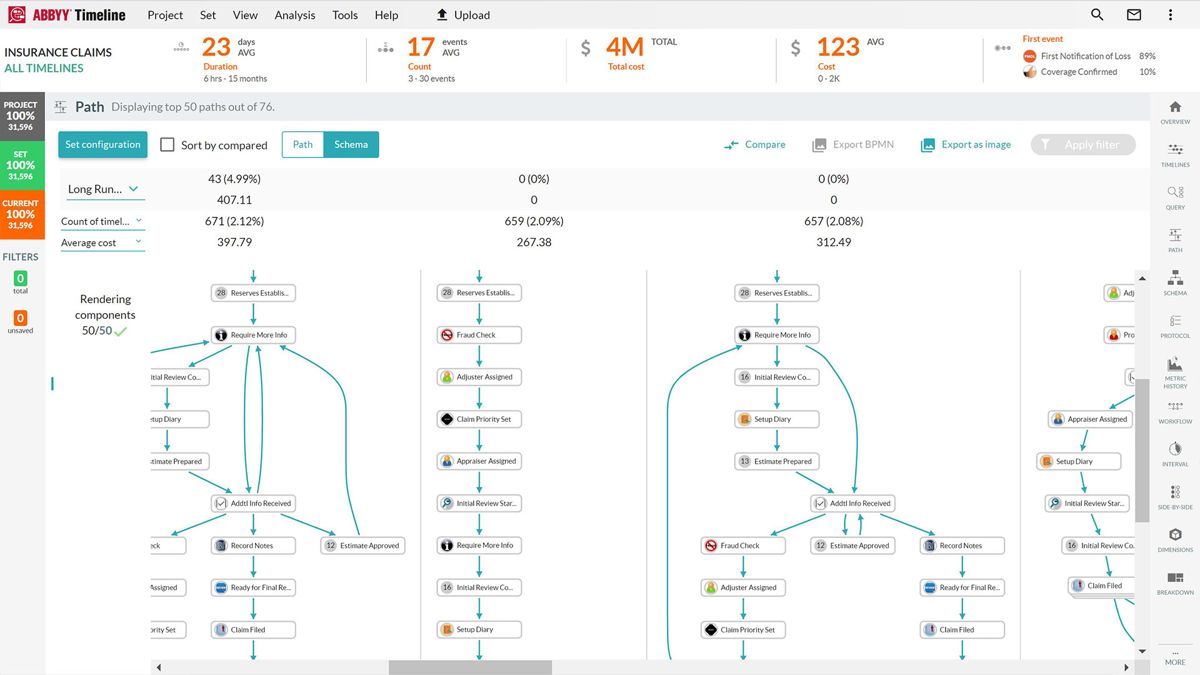
4 min
Every business process is a case management

Every organization has internal business processes occurring in various areas of the company. Some of these business processes have already defined procedures and rules of documents, matters and tasks processing. They are imposed by law or they concern standardized areas of company’s activity.
However, there are many non-standardized business processes that do not have predefined procedures and their improvement would bring tangible benefits to the organization. They share common characteristics and elements, and in fact converge with each other. These processes can be related to different business areas, but most often there are cases, documents, data or reports that need to be handled.
Usually, the same steps are involved:
- Registration
- Working on a case (own/team) with distribution of tasks for users
- Acceptance
- Archiving
A common approach is to carefully analyze each business process or case type taking place in the organization. On the basis of information gathered during the business analysis, a dedicated workflow is prepared, which allows to automate and standardize a given process/case type.
But what to do when there are a lot of these processes, subprocesses and cases, and we need to quickly systematize the flow of information, data and documents?
This is where the second approach will apply – implementing a more universal process to quickly digitalise all these processes and sub-processes.

Case Management
A solution for rapid digitalization of business processes is the implementation of the Case Management process. It can be compared to the implementation of the “ticketing” system, which works flexibly for any type of ticket or issue.
However, the Case Management is primarily focused on the flow and acceptance of information and documents between selected departments and roles in the organization. Each issue connects many types of documents, data or tasks, allowing to work on one object (form), as well as providing a full path of acceptance with the possibility of using a digital signature.
Case Management on WEBCON BPS platform

Case registration
In the first step of the process, every case must be registered.
How to unify one form for all cases? What if we have a lot of attributes/fields depending on the type of case?
If we know that in the process there are many unique fields for a given type of case, it’s worth considering a separate dedicated form.
This will not change the main assumption, which is that the process remains the same, and some attributes/fields may be similar.
However, we should remember to identify properly during business analysis. It may turn out that some types of cases will indicate the need for a separate process, i.e. they will have a separate data model, form, reports or integration methods.
Working on a case
A lot has changed in our work life in the last year. Work that we used to do from the office is now done remotely. This is reflected in the need for access to documents and data in digital form. Our proposed Case Management not only allows a team of people involved in a given case to work on a single document, but also enables delegation of multiple sub-tasks. Tasks can be assigned to a person or group of people, so you can better control the time of completing tasks.
Decision-making and acceptance
Universal information flow cannot work without flexibility in decision making or acceptance of completed tasks.
The Case Management contains a universal list of acceptors, which can be filled manually or automatically, based on predefined business rules. With this solution, the acceptance scheme can be multi-level, and the acceptance can be carried out in parallel or in series.
The list of acceptors, thanks to its universality, enables making decisions for many people, regardless of the level in the hierarchy.
Qualified signature
An important element of the Case Management process is a qualified signature. We use one of the solutions available on the market offered by Autenti and integrate it with the Case Management process in the WEBCON BPS platform, giving users the possibility to sign important documents in a digital form. A qualified signature successfully replaces a traditional signature, even if the document must be in writing under penalty of invalidity.
Archiving
Completed cases will systemically create a single consistent repository of cases/documents.
The digital repository will allow aggregation of data of each type in specific views with appropriate permissions. Case Management creates a digital repository/archive, including the ability to grouping, sorting and linking with other processes.
The digital archive can also be integrated with other external systems, data warehouses or data storages.
Process Mining

source: ABBYY
Few months later the implemented Case Management can be evolved to optimize and expand with more specialized processes.
These changes are possible thanks to the analysis of information flow in the Case Management process. It is on the basis of data from event logs available in WEBCON BPS platform that we are able to visualize the real flow of the process, its critical points and defects.
Thanks to that, you can extract selected processes from the case management and implement dedicated flows e.g. for the contracts, annexes, guarantees, claims, risk management, etc. Using process mining, we can extract the entire process and develop its target schema.
We will write more about process mining approach in the upcoming articles. We encourage you to follow our blog and join our newsletter.
If your organization is looking around for a universal solution to improve business processes, we welcome you to contact us.
We will share our knowledge and experience and present live demo of our Case Management process.

